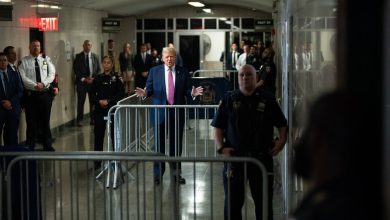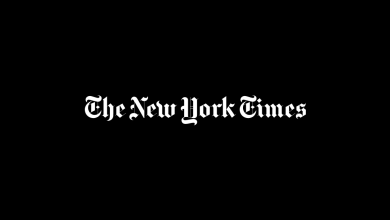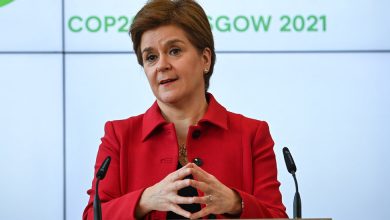Elon Musk Says His Takeover of Twitter Is ‘On Hold’

Elon Musk said his $44 billion bid to purchase Twitter was “temporarily on hold” until he could get more details to confirm that spam and fake accounts represent less than 5 percent of the social network’s total users.
Mr. Musk made the announcement in a pre-dawn tweet on Friday, the latest chapter in an unfolding corporate drama that has raised questions about free speech online and the ramifications of putting the world’s richest person in charge of one of the most influential social media platforms.
Mr. Musk, the chief executive of Tesla, has said that ridding the platform of fake accounts, bots and spam would be one of his top priorities after taking over. In his tweet, Mr. Musk made reference to a May 2 regulatory filing by Twitter that included an estimate of the number of spam and fake accounts.
Known for his freewheeling and sometimes impulsive business style, Mr. Musk’s comments raised questions about the future of the deal.
About two hours after his initial message on Friday — and after shares in Twitter had fallen about 20 percent in premarket trading — Mr. Musk posted again that he was “still committed to acquisition.”
Twitter has few restrictions on signing up for an account, and the company has long struggled with spam and bots. But it has been difficult to put an exact figure on the scale of the problem. In a May 2 regulatory filing, Twitter said that it had estimated that less than 5 percent of its users were fake or spam, a figure it had disclosed previously. Twitter cautioned that it had applied “significant judgment” in making the calculation and that its “estimation of false or spam accounts may not accurately represent the actual number,” language similar to that used in past filings from the company.
Mr. Musk’s comments were seen as either a tactic to drive down the price of the acquisition or a pretext for eventually backing out altogether.
“Many will view this as Musk using this Twitter filing/spam accounts as a way to get out of this deal in a vastly changing market,” Daniel Ives, an analyst with Wedbush, said in a note to investors.
Twitter did not respond to a request for comment.
Mr. Musk’s surprise bid for Twitter has sparked considerable debate about the role of a social media platform to police what is said by its users. Twitter has spent years trying to combat hate speech, harassment and other online abuse, but Mr. Musk, who has a history of using the platform to attack and belittle critics, has pledged to loosen the company’s content moderation policies. On Tuesday, he said he would lift a ban on former President Donald J. Trump.
How Elon Musk Bought Twitter
A blockbuster deal. Elon Musk, the world’s wealthiest man, capped what seemed an improbable attempt by the famously mercurial billionaire to buy Twitter for roughly $44 billion. Here’s how the deal unfolded:
The initial offer. Mr. Musk made an unsolicited bid worth more than $40 billion for the influential social network, saying that he wanted to make Twitter a private company and that he wanted people to be able to speak more freely on the service.
The response. Twitter’s board countered Mr. Musk’s offer with a defense mechanism known as a “poison pill.” This well-worn corporate tactic makes a company less palatable to a potential acquirer by making it more expensive for them to buy shares above a certain threshold.
Securing financing. Though his original offer had scant details and was received skeptically by Wall Street, Mr. Musk has been moving swiftly to secure commitments worth $46.5 billion to finance his bid, putting pressure on Twitter’s board to take his advances seriously.
Striking a deal. With the financing in place, Twitter’s board met with Mr. Musk to discuss his offer. The two sides soon reached a deal, with the social media company agreeing to sell itself for $54.20 a share.
What’s next? Shareholders will vote on the offer, which will also be reviewed by regulators. The deal is expected to take three to six months to close. In the meantime, scrutiny is likely to be intense and several questions remain about Mr. Musk’s plans for the company.
Backing out of the deal could get messy. The purchase agreement includes a $1 billion fee that Mr. Musk would have to pay if he terminated the deal, though it was unclear how such a clause would apply if Mr. Musk could prove Twitter’s user figures were incorrect. If Mr. Musk’s debt financing is intact, Twitter could also take the billionaire to court to force him to pay for the deal.
Mr. Musk has pledged to use a considerable amount of his personal fortune to finance the deal for Twitter, a plan that has been impacted by a recent plunge in stock prices, including Tesla’s. Tesla’s stock has fallen nearly 30 percent in the past month. Mr. Musk is both selling Tesla shares and putting them up as collateral for personal loans to raise cash.
If a deal were to be completed, business challenges at Twitter could force Mr. Musk to draw further on his stock in the electric carmaker to plug potential financial holes. And any problem at Tesla that caused its stock to fall far enough could trigger clauses in Mr. Musk’s personal loans that would require him to add more collateral, limiting his ability to invest in Twitter.
Tesla’s stock rose on Friday after Mr. Musk’s comments.
Mr. Musk’s bid has created uncertainty within Twitter, a company already struggling to add users and generate more revenue. On Thursday, Twitter’s chief executive, Parag Agrawal, fired two top executives, halted new hiring and pledged to slash spending.



